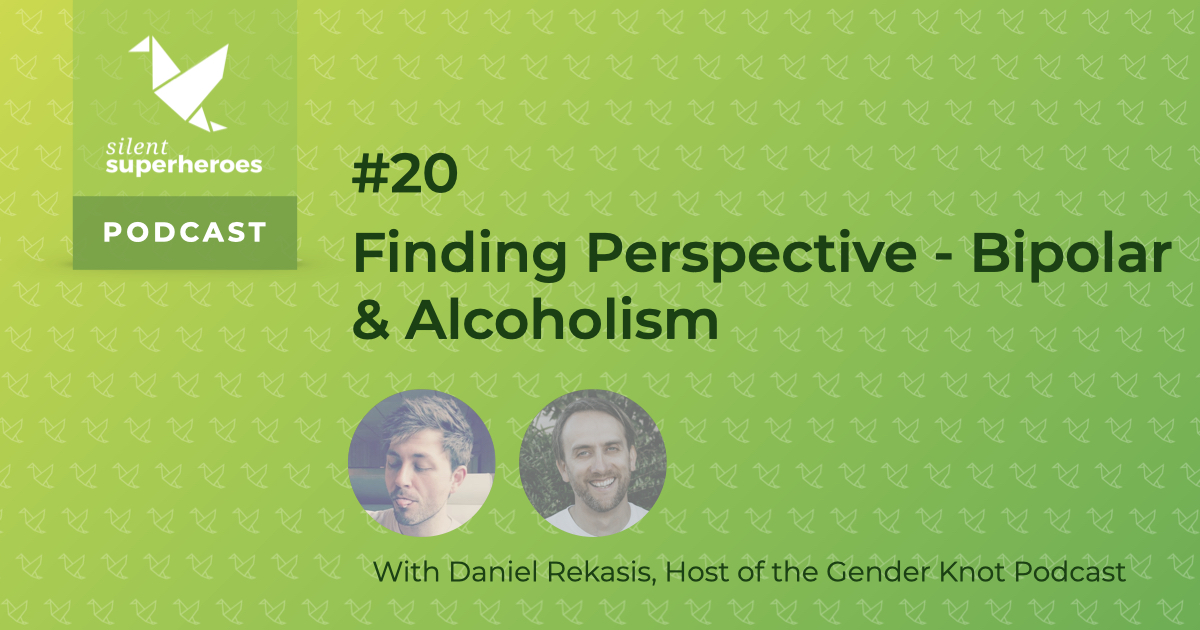By day, Daniel is a sales manager at a credit card processing company and by night he’s a stand up comedian. Bipolar and alcoholism bring a unique perspective to Daniel’s work. As a stand up comedian, his life provides plenty of material, and his bipolar means he’s two comedians in one. As a sales manager, he’s able to stay calm and not be driven by the potential for success and failure. Because of his illnesses, Daniel has an honesty and an insight about him that cuts through the day-to-day business bullshit. As one of his colleagues, he makes work interesting and fun.
Listen To Episode 20
Podcast: Play in new window | Download (Duration: 49:06 — 27.0MB)
Show Notes
In this episode of Silent Superheroes, we get to know Daniel a lot better. He talks about comedy, and how bipolar means he’s two different comedians in one performer. He shares the advice he got from a homeless woman in Central Park, that lead him to sobriety. And finally, he reflects on the slightly nihilistic outlook on life, that helps him keep things in perspective.
Links
Here’s some places to find Daniel :
As a result of Daniel’s Instagram, I’ve just had a fit of laughter. That’s the genius of people with bipolar and alcoholism.
About Bipolar
Bipolar disorder is a mental health condition that causes extreme mood swings. For example, mood swings include emotional highs called mania or hypomania, and lows called depression. On the other hand, Bipolar disorder used to be called manic depression.
When depressed bipolar patients may feel sad or hopeless and lose interest in most activities. Then, when a patients mood shifts to mania or the less extreme hypomania, patients may feel euphoric, full of energy or unusually irritable. These mood swings can affect sleep, energy, activity, judgment, behavior and the ability to think clearly.
Episodes of mood swings may occur rarely or multiple times a year. While most patients will experience some emotional symptoms between episodes, some may not experience any.Although bipolar disorder is a lifelong condition, patients manage mood swings and other symptoms by following a treatment plan. In most cases, bipolar disorder is treated with medications and psychological counseling.
Getting Help
Remember, the people you hear on Silent Superheroes are sharing their opinions about mental health and mental illness. They are not giving advice. For that reason, please consult with your care provider before making a change to your treatment approach.
It’s important to take your mental health seriously. Consequently, if you need to speak to someone you can call 1-800-273-8255, or text crisistextline.org on 741741. Both provide 24×7 confidential counseling to people in the United States. Worldwide visit http://iasp.info/resources/Crisis_Centres/
Because you listened to the podcast, you can help others find it by leaving us a review on iTunes. Or if you don’t use iTunes, leave a review on your favorite podcasting service.


